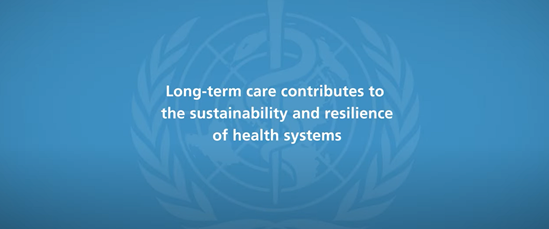Strengthening long-term care systems
A long-term care system encompasses all organizations, people and actions aiming to promote, maintain or improve well-being, health and functional ability for individuals with limitations in intrinsic capacity.
Long-term care systems can be strengthened through concerted actions across their core components or building blocks, each contributing to system performance and resilience in different ways:
- governance, leadership and information systems (including monitoring and evaluation) are essential to ensure a legislative and operational framework that grounds the functioning of long-term care systems;
- sustainable financing and an adequately trained, empowered and protected workforce are key inputs for the system;
- finally, the organization of service delivery and support for the development, adoption and scale-up of innovation and research are key determinants of the availability, quality and distribution of care.
The role of WHO includes:
- building national and regional technical capacity to strengthen long-term care systems throughout the European region;
- support member States to assess, plan, implement and evaluate interventions and actions on all core components of long-term care system;
- develop technical products, tools and guidance on long-term care system resilience, responsiveness and performance.
To support local, regional and national authorities in their reform efforts, WHO Europe organizes assessments of long-term care and palliative care delivery, identifying key areas of intervention and offering tools like the Country assessment framework for the integrated delivery of long-term care.









